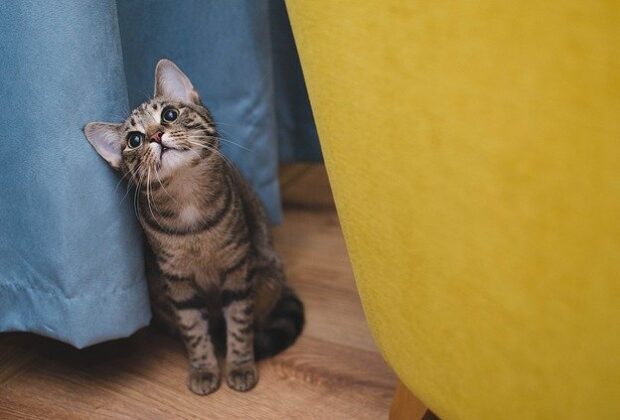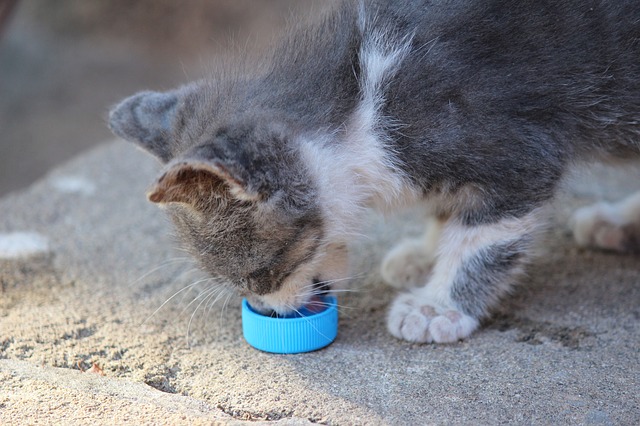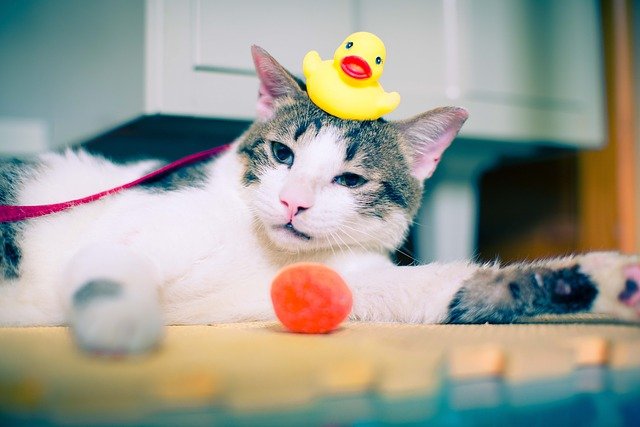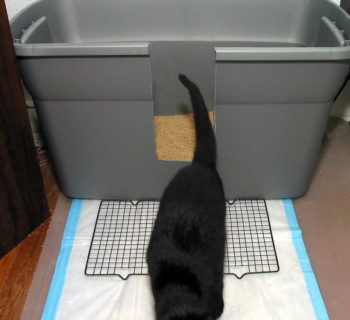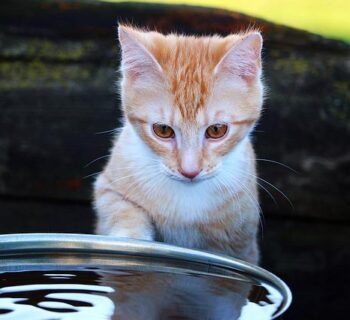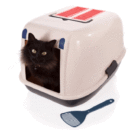Like most household pets, kittens quickly grow the first few weeks and months of their lives. However, it doesn't mean they stop becoming kittens when they grow bigger. So how do we know when a kitten becomes a cat? We'll find out in this article. Here, we'll also discuss other helpful details about the growing kitten.
But first;
Things to Do Before You Get a Kitten
- Invest in a quality cat carrier
- Register with a vet
- Get the essentials like food, shallow water bowls, bed, toys, litter trays, and cat hygiene products like brushes, combs, and soaps.
- Get a break-proof collar fitted with an identity disc for your cat's address details.
- Get your home ready
- Secure trailing wires properly
- Keep toxic plants, chemicals, human foods, medicines, and other potentially harmful possessions away from your cat's reach.
- Get a cat tree with a scratching post, or create a scratching post yourself if there are no readily available and convenient spaces for your cat to scratch.
- Set up a private area for litter box/tray use
- Set up the eating bowl and drinking water in separate locations as cats do not always like to eat and drink in the same place.
- Set up the litter box or tray in a different area as most cats will not litter where they eat
- Create a safe space for your kitten to have its privacy and quiet time. Cats enjoy their solitude, and even a cardboard box will do.
- Microchip when your cat gets home for easy identification and reunification if ever lost.
Table of Contents
From Kitten to Cat
How Old Are Kittens When They First Open Their Eyes
Kittens are born with their eyes closed, and most will begin to open their eyes around the 7th to the 10th day. At this stage, the kitten is tiny and highly dependent on you and its mother for survival. However, at around the 3rd week, you will notice that its eyes are fully open, and the ears are no more droopy but erect. You will also see the teeth. Although the first steps are usually shaky, many kittens will even start walking around this age.
How Many Hours Does a Kitten Sleep Daily?
The newborn cat will sleep up to 90 percent of the time. That is around 21 – 22 hours daily. As it grows older, it naturally sleeps less. Most kittens will generally sleep up to 16 hours daily, even until they reach their 6th month of life.
What Can You Feed an Eight-Week Old Kitten?
At their 8th week, most kittens can begin eating dry or canned kitten food with no problem at all. While its meals are usually smaller at this stage, it should be fed frequently. We have listed the best dry kitten food here for reference.
What Is a Kitten’s Eye Color?
Many kittens are generally born with blue eyes. However, around their 7th -10th week of life, the eye pigment starts to change. At the 4th month, your kitten's eyes should have matured into their adult color.
When Can I Let My Kitten Go Outside?
Ensure you keep your kitten indoors until its 6th month of life. You want it vaccinated and possibly neutered before letting it go outside, especially when unsupervised.
When Should a Cat Get Neutered?
Upon completing the feline's core vaccinations, neutering may be carried out at around the 4th month of life. Some pet experts recommend spaying at the fifth or sixth month, but it is always safe to neuter older cats.
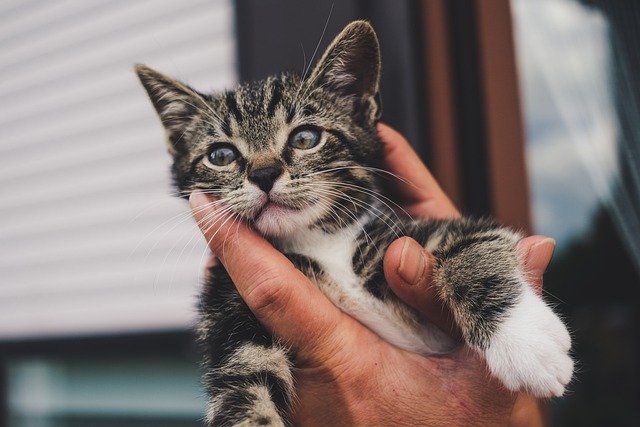
When Is a Feline No Longer a Kitten?
Kittens are usually considered matured and fully physically and socially developed around their 12th to 18th month. At this stage, you will observe certain aggressive tendencies that were common during puberty begin to lessen. We must mention here that some cats may reach the one-year mark and still not be fully grown depending on the particular cat and its breed type.
When Does a Cat Reach Sexual Maturity?
Cats will usually reach sexual maturity towards the end of their 6th or 7th month of life. You will notice certain physical and behavioral signs of puberty/sexual maturity at this stage. These signs often include heat cycles in females and urine spraying in males.
Unsprayed, female cats may reach sexual maturity around their 6th month. Breeds like the Siamese may reach sexual maturity at about five months old, while the Persian cats may reach their 10th month before becoming active sexually.
When Does a Cat Stop Growing?
Cats have different growth periods. The first growth period takes about four months for many cats, which ushers them into the kitten stage. The second phase is usually from the 4th month to around the 8th or 12th month, depending on the size and breed.
Usually, at the 6th month, most kittens species will start to resemble adult cats. However, they still require nutritional support for adequate development and overall health. They often can be fed adult cat food at this stage.
Things to Know About Kitten to Cat Growth Stage
Some Cats Breeds Grow Quicker and Mature Faster Than Others
While there is a general growth range estimate, keep in mind that a cat's breed influences its growth rate. The large breed cats, for example, will take a longer time to stop growing as maturity requires more time for them. Large breed cats like the Maine Coon may take up to 4 years to grow to maturity/full size.
Diet Influences Cat Growth
Diet can determine how much and how quickly your cat grows. At their early stage of life, you want to provide your cats with adequate amounts of calories and other beneficial nutrients to reach their full size at the right time. Poorly-fed or malnourished cats can have their growth stunted and their maturity significantly delayed compared to well-fed and well-cared-for counterparts.
Spaying Age Is a Crucial Factor
The age at which your cat is spayed or neutered may determine its growth and maturity rate. In some studies, cats spayed/neutered early were found to grow bigger and faster than unsprayed or late-neutered cats/cats neutered in adulthood.
Diseases/Deformities
Certain diseases and bone-related issues may affect a cat's growth rate and size. Dwarfism is one of the common health conditions known to stunt a kitten's growth.
How Can I Tell When a Kitten Has Reached Its Full Size?
While some cat breeds will continue to grow after their first year, the growth rate generally reduces after this stage. You may not even notice their growth unless you are paying close attention.
One of the best ways to tell if your kitten is still growing or has stopped is by measuring and weighing it monthly. Growing cats usually continue to gain height (top of their shoulder to the ground) and length. By measuring your kitten monthly, you will be quick to tell when the measurements remain the same; end of growth.
Weighing your cat is another method of conveying your cat's maturity or age estimate, particularly if adopted or brought home from the shelter. Start by weighing the cat around their 16th week and then doubling the number. The figure you get should be around your feline's adult weight, even though not exact. You can also weigh your cat monthly to determine when it reaches its full size.
When Does a Cat Become a Kitten? Final Words
While many cat owners wish their kittens would remain small and adorable instead of growing fully into adults, it is impossible. Like all living things, felines have to grow and mature into adulthood. As expected, this comes with its issues and requirements that every cat parent should be willing to attend to.
Here, we discussed the stages of growth, common traits in the growing kitten, how to tell a kitten's age, when a kitten stops growing, when you can feed a kitten adult food, and factors that may influence the growth of a kitten, among other details we think you may find helpful.
Remember that when it comes to being a pet parent, the learning never ends. Cats and any other pet will surprise you with certain behaviors and traits even with all of your knowledge. Take each experience as it comes and make the most of it with your feline; they grow fast and need all of our love and attention each step of the way.
About the Author
Kirsten Heggarty
Kirsten created The Pet Handbook with the aim of sharing her knowledge about pets, pet food, healthy habits, and more. All of her advice is based on years of her own experience with her pets, and feedback that she has received from grateful readers about her tips. If you want to know more please read the About Me page.

